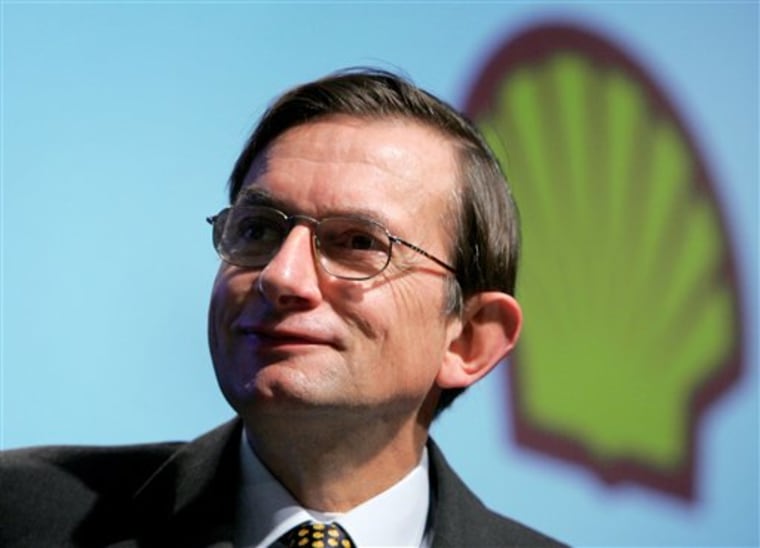Royal Dutch Shell PLC reported a 4 percent drop in fourth quarter net profit and a 2 percent decline in sales Thursday, as the impact from hurricanes Katrina and Rita outweighed the high price of oil.
Net profit came to $4.37 billion, down from $4.57 billion, while sales fell to $92.8 billion from $95.1 billion.
By comparison, Exxon Mobil Corp. reported a 27 percent rise in fourth-quarter earnings earlier this week.
Shell's full-year earnings rose 37 percent to $25.3 billion, while sales rose 12 percent to $379.0 billion.
The company's new CEO Jeroen van der Veer tried to emphasize the positive in the results, citing "record cash and earnings" for the full year and "success in exploration and gaining access to new resources."
"Our financial position is solid, and we returned over $17 billion to our shareholders through dividends" and share buybacks in 2005, Van der Veer said. "We focus on delivery now and building the future."
Despite President George W. Bush's call this week on U.S. consumers to break their "addiction" to oil, Van der Veer said the global appetite for energy is likely to increase by half over the next 25 years, which means a continued dependency on fossil fuels for a long time.
"No one should underestimate the energy challenge facing us all," he said.
Shell, which planned to pump $90 billion into investments in 2006, is increasingly looking to "new energy solutions so that we can grow without environmental degradation," with a focus on developing biofuels, he said.
The company's main long-term problem is seen as the gap between the amount of oil and gas it is currently pumping and how much it will be able to produce in the future. In terms of volume, oil production fell 8 percent in the quarter and 7 percent in the year, while gas was down 6 percent on the year and 10 percent on the quarter.
Shell has announced it will invest $19 billion in capital expenditures this year, up from $15 billion in 2005, with the majority in "upstream" — or exploration and production projects.
For the quarter, Shell's earnings from exploration increased by 22 percent to 3.56 billion euros because of the high prices, even as oil and natural gas production declined in terms of volume.
The company said it expects to add around 750 million to 850 million barrels to proven reserves this year, and expects to return to a "100 percent reserves replacement" by 2008.
Analyst Antoine Leurent of KBC Peel Hunt said the results were more or less in line with expectations and the reserve replacement showed Shell is "getting back on its feet again."
Hurricane Katrina drove crude oil prices to a high of $70.85 a barrel after it battered the Gulf Coast, and Shell said its crude oil prices were around 29 percent higher in the fourth quarter.
That hurricane and Rita also knocked out rigs and caused other damage. Shell said it expected the hurricane damages to production to total around $275 million, of which $130 million has already spent. It said it didn't know how much of that it will ultimately get back from insurance companies.
In Shell's oil refining division, profits fell by 51 percent to $828 million due to lost intake during the hurricanes, and lower refining earnings. The company had also had an $405 million windfall in 2004 due to a revaluation of assets.
Van der Veer also welcomed the release Monday of four international workers who had been held hostage for two weeks by secessionists in southern Nigeria, and said his company would not abandon the African country.
"Shell has been in Nigeria for over 50 years, and we will stay there," he told a news conference.
Shell is recovering from a major accounting scandal in which it was forced repeatedly to reduce the size of its estimated oil reserves in 2004 and 2005, ultimately forcing the departure of then-chief executive officer Philip Watts. It also led the company to merge its British and Dutch arms into a single company.
